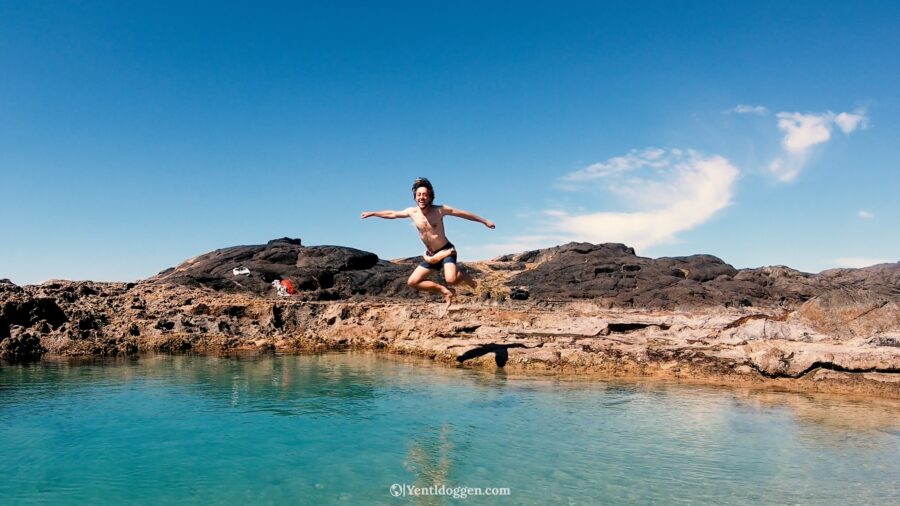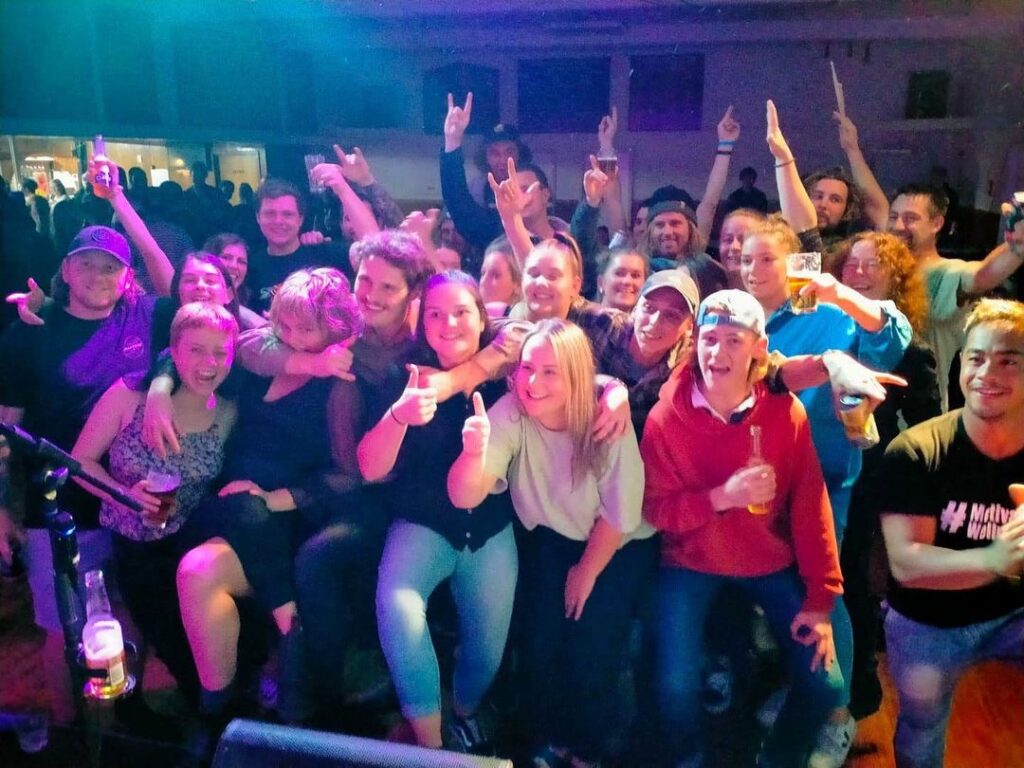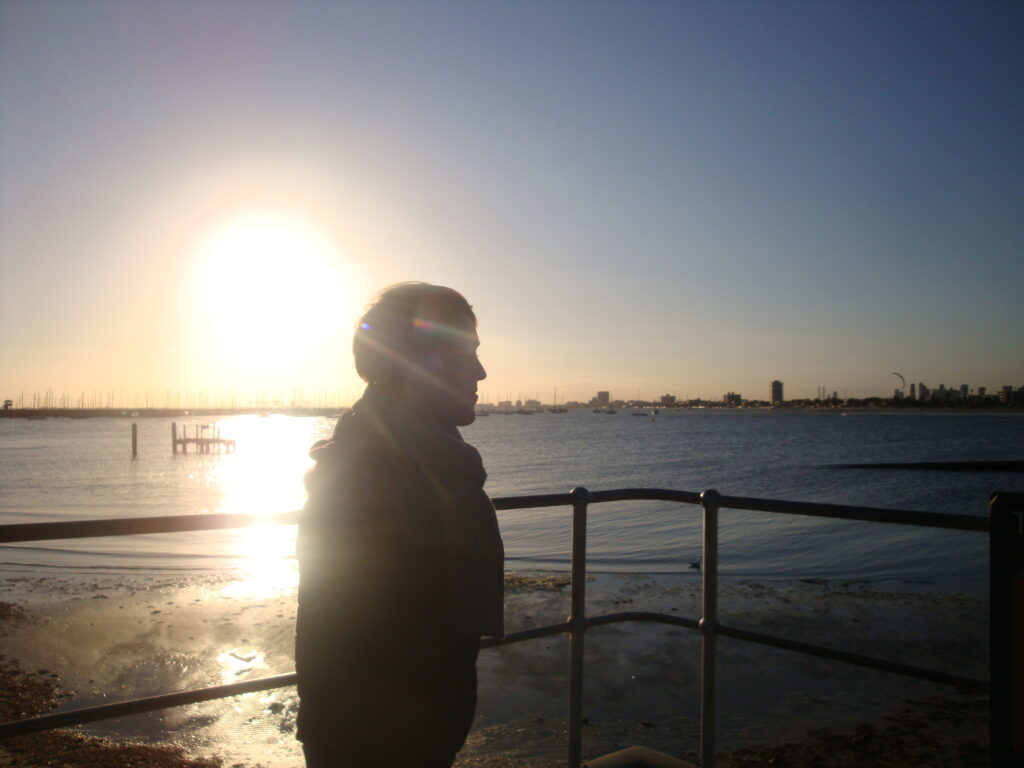travel, Travel Guides, Travel Tips
The ultimate travel guide to staying in hostels | Surviving hostel life as a traveller
Backpackers’ accommodations and hostels sometimes end up with a bad reputation. Like most people, you would have heard all these unpleasant stories about sleeping in the same room with people you don’t know. Nevertheless, most hostel experiences are pretty awesome. Whether you are a solo traveller, a couple or a group, or whichever combination, you need to experience staying in a hostel. Yes, sometimes it does get a little uncomfortable to come home and have to share your room and space with other people, but most of the time, you will love it! On top of that, the people you meet in hostels are incredible and have some of the best stories I’ve heard! Not convinced? This ultimate travel guide to living in hostels has everything you need to put your mind at ease.
When we started travelling together, I was nervous and anxious about sleeping in hostels. On the contrary, Yentl has been staying in hostels for the past few years and loves it. He even continuously lived in a hostel for five months and assured me there was nothing to worry about. In retrospect, indeed, I did not have anything to worry about! Hostel life is, by far, one of the best ways to travel around the world on a budget. Staying in a hostel allows you to save plenty of money. Moreover, it will enable you to meet other incredible, like-minded travellers.
Whether you are a hostel stayer looking for tips or a traveller preparing for your first stay in a hostel, this guide to hostel life will cover all the essential things you need to know. At the end of this guide, you will see that hostels aren’t just a piece of budget accommodation. I’ll make sure that hostel life will become your favourite way of travelling so that you can explore the world on a budget and in the best way possible! Grab a beer and prepare for the ultimate travel guide to living in hostels.
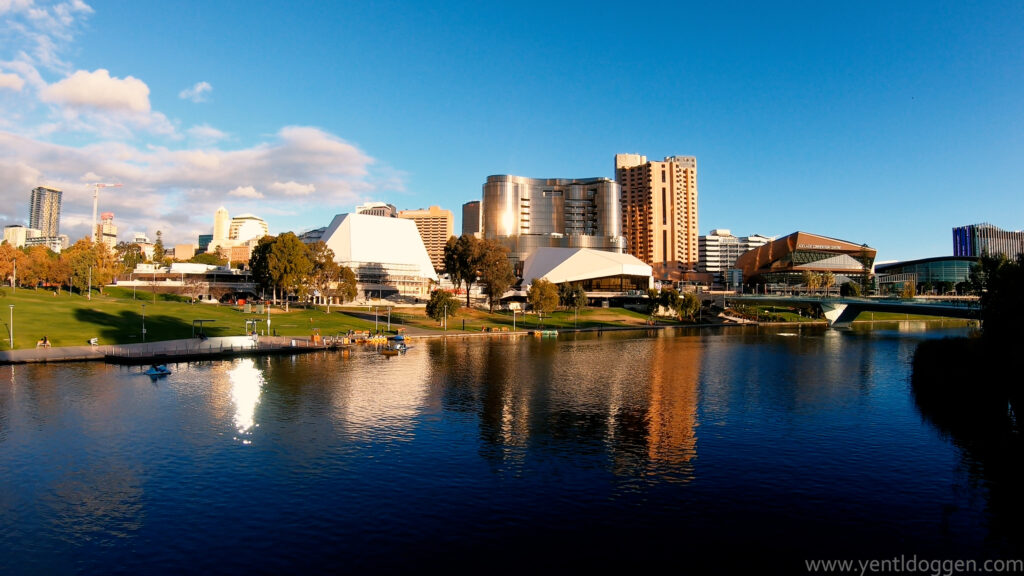
Talk to your roommates – make as many friends as you can (solo travellers especially):
Talking to your roommates is important for all types of travellers, particularly for solo travellers. Making friends is easy in hostels and makes your time here more enjoyable. The first step is introducing yourself to your roommates; this is always a great start, and things usually go quickly. Five minutes later, you might be making plans with your new best friend for the day.
Have some original questions ready:
You will meet new people daily, and everyone will ask the same questions. Where are you from? How long have you been travelling? What have you done? You know them all. Be original and have some unique questions ready; it will be the best way to make friends and makes you stand out from all the other travellers.
Photos can be deceiving; read the reviews or booking scores:
When booking your hostel, do not just look at the pictures and price. Images can be deceiving. You should read the reviews and watch the booking scores (as found on booking.com). These scores and reviews will usually give you a good indication of how good/clean/quiet the hostel is. If possible, ensure your hostel has at least a 6/10 rating. A 7/10 and 8/10 hostel usually guarantees a good night’s rest and a good atmosphere, whereas a 9/10 is exceptional.
Find a washing friend:
Finding a washing friend might sound weird initially, but finding someone to wash with saves you money and helps the environment. You can easily fit another person’s things in with yours!
Pick your bed wisely:
In most hostel rooms, you choose between the top or bottom bunk. Both have pros and cons, so I will briefly outline them.
The top bunk can be annoying as you have to climb up. It can also get a little shaky there. However, you do not have another bed on top of you, thus giving you the most room and making it more comfortable. You also have more privacy and space, as people cannot come and sit on your bed with you quickly. Further, getting down at night is annoying and tricky in the dark, so you may prefer the bottom bunk if you usually have to get up at night.
Conversely, the bottom bunk is easy to get to and has less wobble. You get less room, which can make you feel cramped, but you also get most of the light shut out, making it easier to fall asleep while others are up. This decision is entirely personal, but I prefer the top bunk usually, as it gives me the most space.
In addition, I also always try to choose a bed furthest from the door and close to a window, especially in mixed dorms. The noise from the door is limited, and I get the freshest air, as it can get stuffy in the hostel rooms.
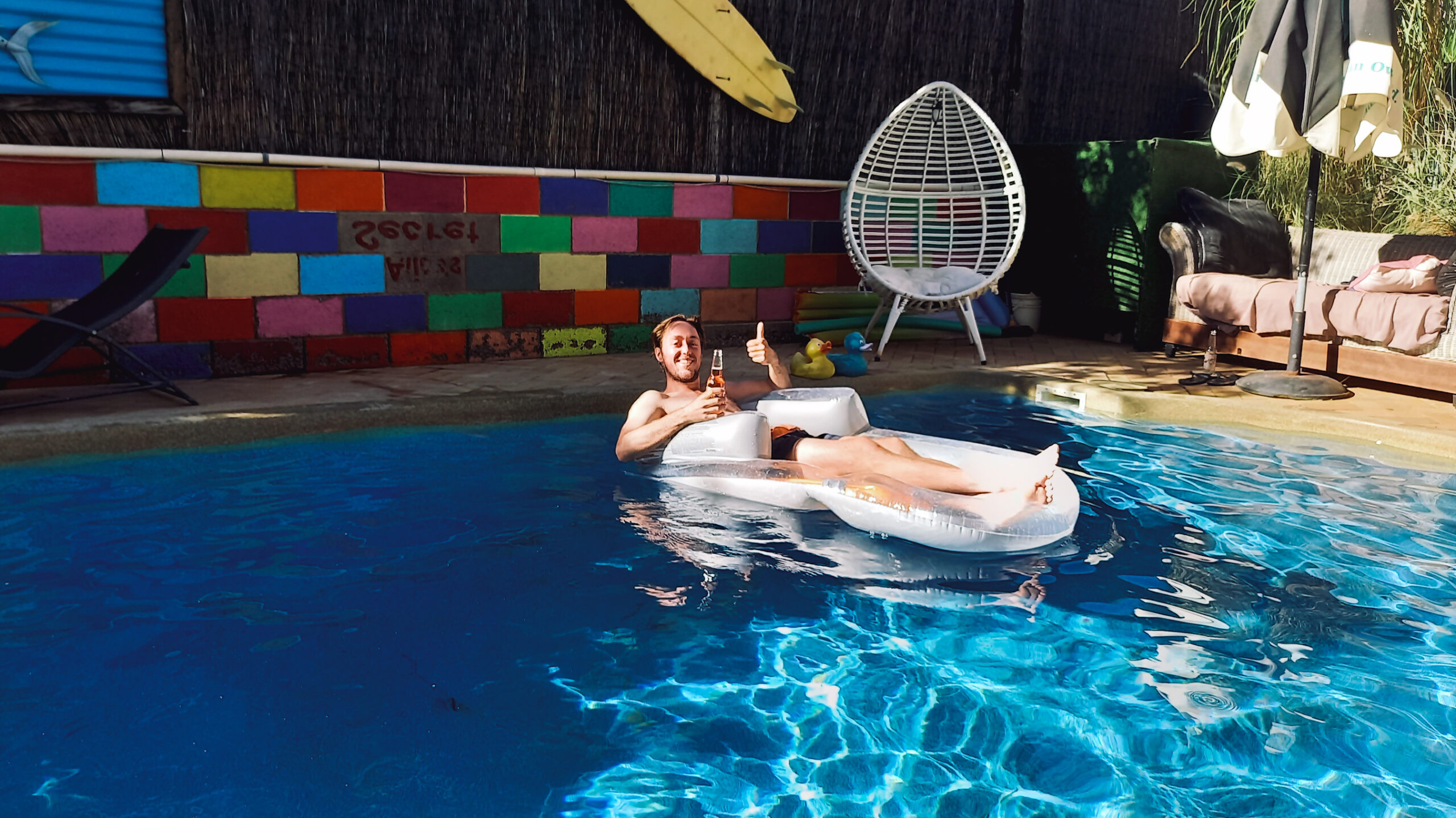
If you stay long term, ask about the weekly rate or work for accommodation:
If you have found yourself a job close to your hostel and cannot see yourself being able to find or afford a place of your own, ask the hostel about their weekly rates. Most hostels have these for their long-term residents, saving you quite a bit of money in the long run. In addition, if you have some free time and are staying long term, ask to work for accommodation. You work either cleaning, reception or night shift, and they are not usually long shifts. Most hostels offer this option, and you most likely get a better staff room. This is the best way to save even more money when living in a hostel.
Shower shoes/thongs:
You might be sharing your bathroom with multiple other people. While the showers are cleaned regularly, you do not know what is on that floor. Buy cheap flip flops/thongs or shower shoes to protect yourself from feet nasties.
Earplugs:
Earplugs have already saved many travellers’ nights and continue to do. You hope never to need them, but eventually, you might. Let it be a noisy or snoring roommate; you will be thankful for these. If there is something that you need to know from this guide to living in hostels, it is this.
Coins for laundry and dryer:
Almost all hostels will have laundry facilities you must pay to use. Usually, they will only take coins. Try to have some cash on hand when your washing day finally comes around. If not, ask reception to exchange some money.
Keep a lightweight dirty clothes bag:
You rarely think about your dirty clothes when you make your packing list for this big adventure. But trust me, you will want a separate dirty washing bag. It does not need to be fancy, but it is the best way to keep the smelly socks away from your clean clothes in your locker and your backpack when moving around.
Washing detergent in a zip lock bag:
Buying washing detergent from the hostel can be expensive, so I suggest carrying some with you in a zip-lock bag. Not heaps, of course, but enough to get you through 5-10 washes or thereabouts is sufficient. Furthermore, if people in your room also need it, ask if they want to split a box. Then, when you move on, take some of it in a bag with you.
*Please do not put washing powder in your carry-on baggage; it is not a good look.
Pack your bag the night before if you are leaving early:
Packing your bag the night before makes you super organised and ready for a brisk morning and is also respectful to your roommates. If you have an early commitment, you do not want to wake your whole room Moreover, if you are leaving early the following day and continuing, make sure everything you need is in the same spot so that you can grab and go.
Eye mask:
Like the earplug, you do not know you need it until you do. It is most likely that you and the other people in your room will have different sleep schedules. At some point, it will be inevitable that you will want to sleep, but the light will still be on for one reason or another. An eye mask makes it a little easier to get to sleep; if you are anything like me, you will use it quite a bit.
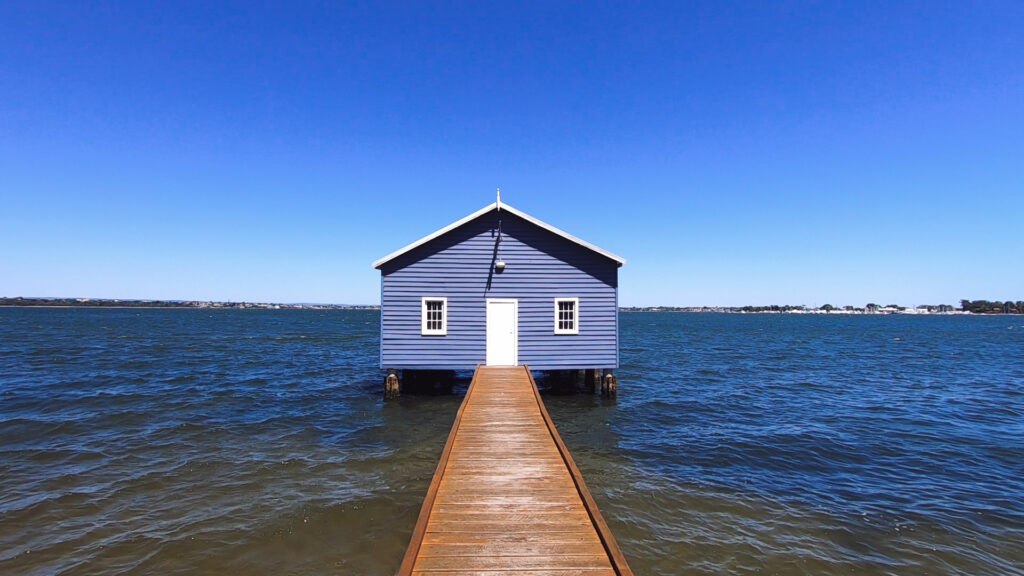
Smelly shoes, outside:
There is nothing worse than smelly shoes in your hostel room. If you think your shoes will smell after a long day of hiking or sightseeing, please leave them outside the room if you can. Some hostels will even have a little shoebox you can use. Your roommates will appreciate it, and so will you.
Never be afraid to speak up – if you need something, or the people in your room suck, ask to be moved:
If you need something in a hostel, never be afraid to ask reception for it. They are usually very accommodating and understanding. They will understand, especially if you have a snorer in your room or if someone is making you uncomfortable. Moreover, if you are struggling with someone in your room for whatever reason, ask for a room change.
Bring a padlock for lockers:
There are lockers in most hostel rooms where you can store your belongings. Using them frees up space in the room, but it is also the safest place to keep them. Additionally, you should invest in a small padlock to secure the locker when you are not there. While hostels have strict rules about stealing, it can still happen, so it is best if you do not leave it open to temptation.
You need to clean up after yourself;
For most people reading this, cleaning up after yourself is standard practice. However, some travellers have not adjusted to not having their mummy there to clean up after them. No one is cleaning up after you, so wash your dishes, put your rubbish away and wipe down the surface if you made a mess. Trust me when I say that other people will notice and be very thankful. It makes it much easier to make friends than if you are messy.
If it does not feel right, leave:
As someone who is usually a bit anxious, I will always trust my gut instinct, especially when it comes to where I sleep. When you are sleeping, you are most vulnerable, so you must research the hostel you are staying at. If you get there, you look around, and it just does not feel right, leave. The 20 or so dollars you will lose does not matter if you feel unsafe. Trust your instincts; they are there to keep you safe.

Book ahead in peak:
Booking ahead during peak travel season goes without saying, but somehow it can be the easiest to forget. School holidays, public holidays, and significant events, such as New Years’ Eve in Sydney or Formula One in Melbourne, will always bookout hostels. Therefore, book at least three weeks before if you want to be somewhere during a peak season.
If someone is being loud, tell them:
Do not be scared to speak up and tell someone nicely if they are being too loud. Especially at night or early in the morning. If you ask politely, and they still will not be quiet, refer to the above and ask for a room change if it bothers you that much.
Food:
Ensure all your food is labelled and stored in the kitchen in the right places. The best way to do this is to put all the food into one bag (i.e. a shopping bag), tie the top together, and label it. Hungry backpackers will go after anything that is not marked. Moreover, you should write your checkout date on the label, as hostels spontaneously clean out the fridges, so if they cannot work out if you are still there, your food may get chucked.
Keep a small, reusable food container with you:
Having a reusable container is always a plus. If you have leftovers from dinner, you can use the container to store them for the next day or take them out on your day trip. Most hostels do not let you keep your food in the pan in the fridge, so you either have to eat everything or give it away if you do not have a container.
Before you go shopping, check the free food section:
As travellers move from hostels, they usually leave behind the food they cannot carry in the hostel’s free food section. In most hostels, you will find this in the kitchen. It is always best to check here before shopping, as most of the needed staples will be here. Sometimes, there is only enough pasta or rice for one night, and in others, there are full bags of goodies you can use. Either way, it can save money and time and helps reduce food waste. Similarly, when you leave and cannot carry some food, leave it here; please do not just throw it out.
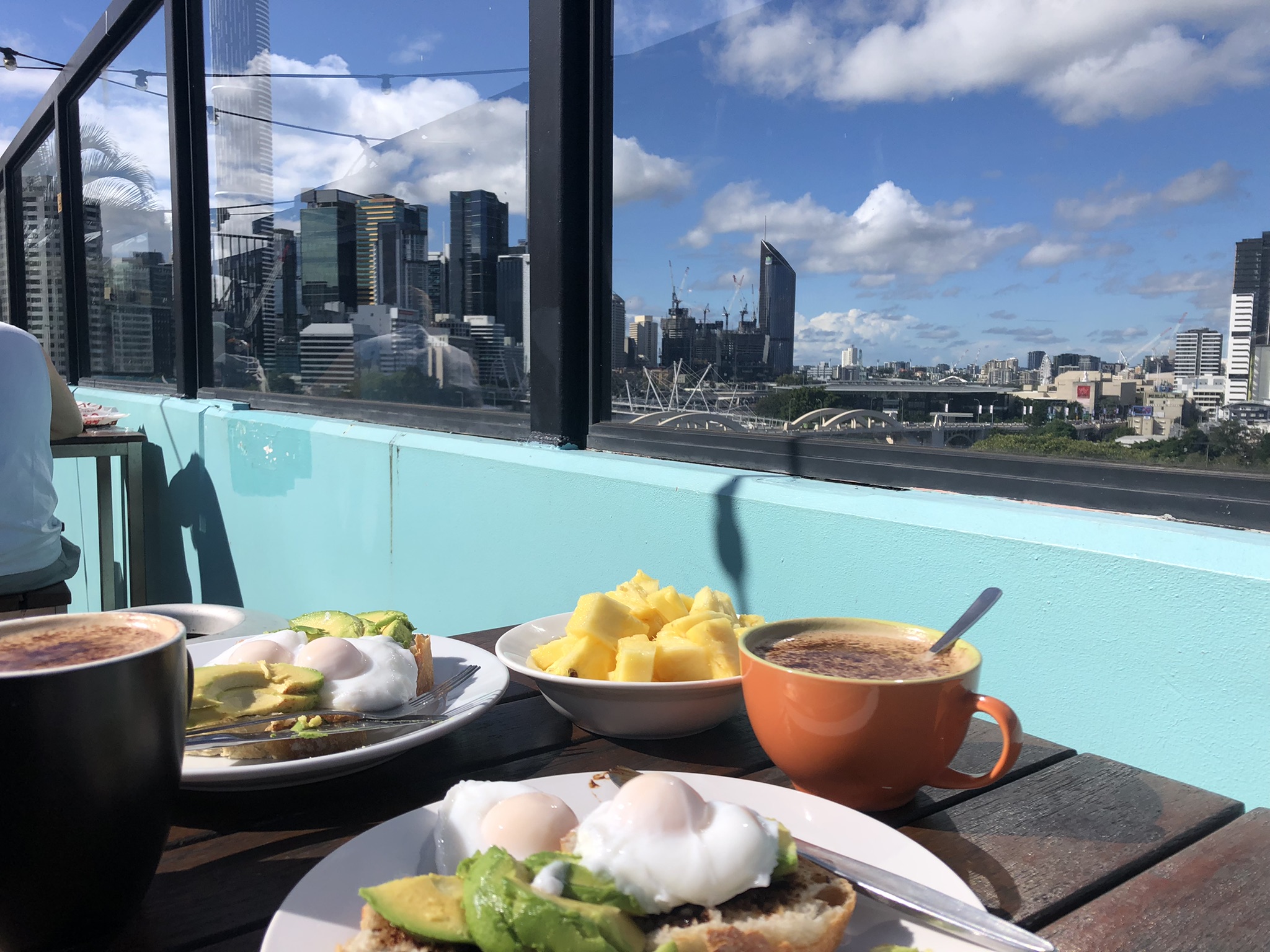
Let the hostel know if you have a late arrival:
Being nice and friendly to the hostel staff will make your stay 100 times better. If you know you have a late arrival, it is respectful to let them know when you think you will arrive, as most hostel receptions are not open 24 hours. Furthermore, if you arrive very late, they may think you are no longer coming and not wait for you, so you may be left homeless for the night. Therefore, it benefits you bo you let the hostel know your arrival time.
Make friends with locals:
If you stay long-term, making friends with locals can benefit you in many ways. They know all the best places to go and sometimes will even take you there. Further, while they will also be happy to shout you, a poor backpacker, a drink, do not be afraid to do the same with them every so often. You do not want to always come off as a cheap escape. Also, try to learn a bit about their culture. For instance, if you are invited to an Australian home for dinner, it is customary to bring something with you unless they specifically tell you not to. Let that be your drinks, some drinks for them, or a salad to share.
Research your hostel – some are rowdier than others:
Depending on what you like or feel at the time, different hostels give you different experiences. Some are well-known party hostels, whereas some are most relaxed and have more long-term residents. For example, the St Kilda hostels in Melbourne are renowned for being party hostels, whereas the inner city ones are not as rowdy.
Take your clothes to the shower with you:
Instead of walking around in your towel after your shower, take your clothes. It makes getting changed easier and much more private.
Etiquette – short and sweet reminders:
Going on from all the survival tips, I will also outline some etiquette. They do not need to be elaborated on; most of these should be common sense.
- Do not have sex in a shared room
- Do not smoke in the rooms; go outside
- Keep all your things neat and tidy
- Ask before you turn the lights on or off.
- Don’t hang your clothes on other people’s beds.
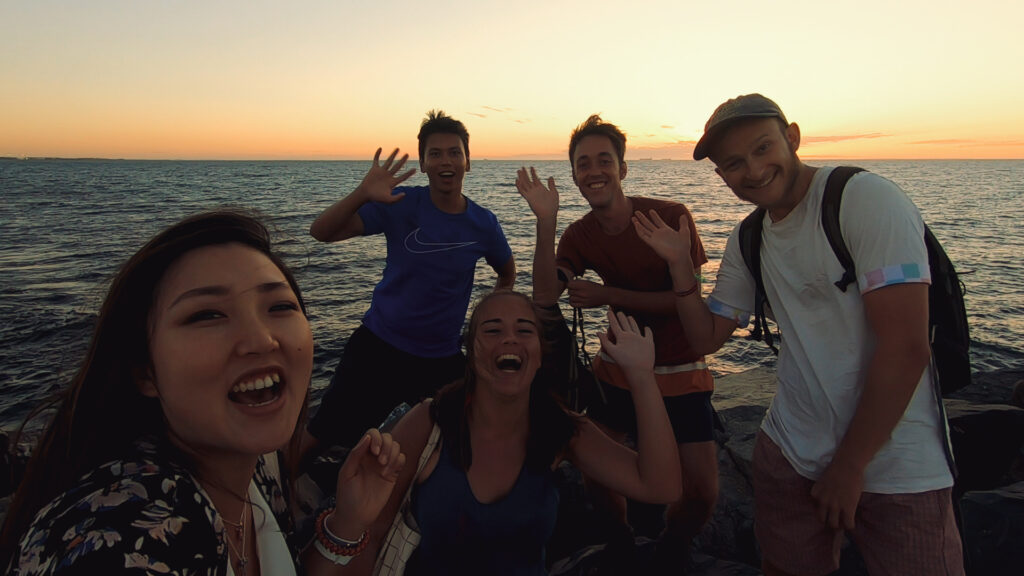
Are you enjoying our travel tips and tricks section? Please let us know in the comments below! If you need help or have questions about exploring this fantastic world, check out our travel guides or contact us through the contact page. We are happy to help with all your travel needs and questions! For more inspiration, ensure to check out our blogs and vlogs! To keep up-to-date with future adventures and travel guides, follow us on Facebook and Instagram, or subscribe to our newsletter. We can’t build this platform without our readers, so we thank you for your continued support. Stay tuned for many more adventures to come!






